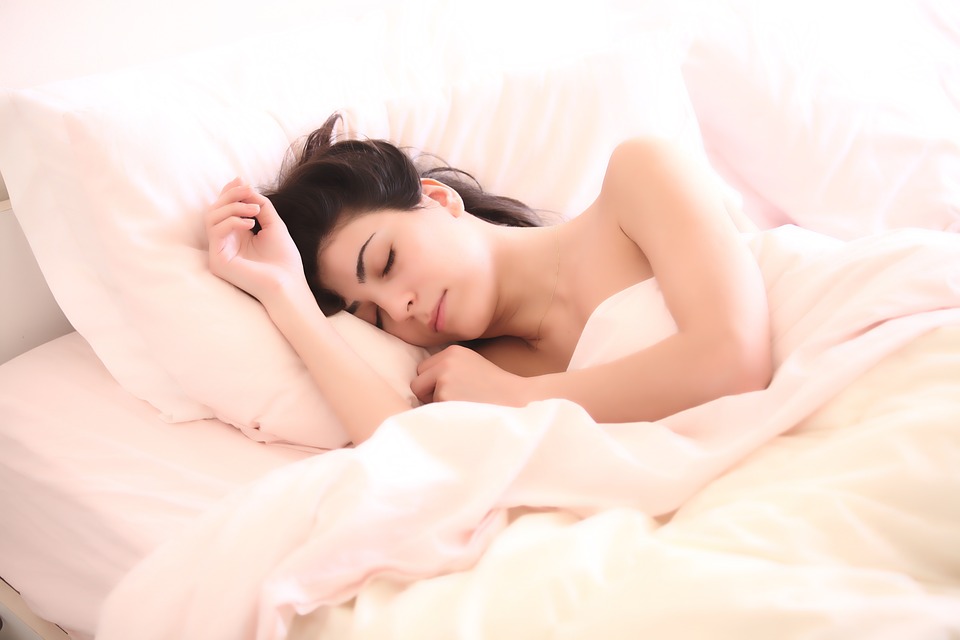
Mental health is a topic that is extremely close to my heart, so when I was invited to team up with Tempur on a campaign to raise awareness, I jumped at the chance. At times, I struggle with anxiety myself, and so I know how detrimental mental health can be when there is a lack of support in place, which is why I am always so keen to back any campaign that focuses on raising awareness.
Tempur have conducted a mental health survey which focuses on the impact of a lack of sleep and poor quality sleep on mental health and wellbeing. This ties in with UK mental health awareness week which focused on mental health and body image.
Body image plays a huge role in how we feel about ourselves – this is something that I know for a fact. Since being diagnosed with Polycystic Ovary Syndrome (PCOS), which also interestingly has a link to anxiety, my weight has increased significantly, which has had a serious impact on how I feel about myself. This is something that I struggle with on a daily basis – I no longer like what I see in the mirror as much as I used to, and coping with a changing body as a result of an illness is not easy.
However, while it’s not easy seeing your body change in ways that are out of your control, I have realised that I can’t let it get me down. Your weight and size and shape do not define you. Who you are as a person defines you, but your appearance does not, and that is the key thing to remember.
I personally have found that it’s important not to compare myself to others. I try to lead a healthy life, but while doing so I also try to remain happy and upbeat about the person I am, and how I look. I’m not perfect, but then, who is? Everyone has their flaws. Everyone has parts of their body that they dislike, even the models on the catwalks aren’t 100% confident in their own skin.
Body image is one aspect that can impact mental health but there are also other factors too, as Tempur found out.
Lack of sleep
According to The National Sleep Foundation, it’s recommended that adults aged 18-25 get between seven and nine hours of sleep per night, while 26-64-year-olds need seven to eight hours of sleep per night. Interestingly, over a quarter of us (27% of Brits) get less than six hours of sleep per night, with 9% getting less than five hours of sleep. This shows that the majority of people are not getting enough sleep.
I’m lucky in the fact that for the majority of the time, I manage to sleep fairly soundly – I do think that this is linked to how comfortable my mattress is though, as prior to upgrading my sleeping solution, I didn’t sleep as well. On a weekday, I aim to be in bed by 10 and asleep by 11, setting my alarm for seven the next morning, which means on average I get around eight hours of sleep per night. However, like everyone, I do have the odd bad night where I really struggle to fall asleep or stay asleep, and I always find that the next day my mood suffers as a result of being tired.
The survey also showed that on average, it takes us 20 minutes to fall asleep, but one in 16 of us (6%), take over an hour to fall asleep. Even once we are asleep, many of us find it difficult to stay asleep, with the average person waking up two times each night, and one in ten people (11%) waking up four or more times a night.

Loneliness
Being lonely can have a significant impact on your mental health. The issue is, of course, that when you’re feeling low as a result of not socialising, it’s hard to motivate yourself to get out and socialise with others. The key thing to remember is that the more you get out, the better you will feel.
I work remotely from home, which means that when it comes to my social life, it can be a little ‘hit and miss’ at times. I find that when I am stuck at home, failing to get out of the house regularly, I can end up feeling rather lonely, and as a result, my mental health can be impacted. So as a rule of thumb, I try to leave the house at least once a day. I either go for a nice long walk, grab a coffee or sometimes I will work in a co-working space – I do my best to remain as social as possible.
Having moved to a new area recently, I don’t know many people, which hasn’t helped the whole staying social thing. However, I stumbled across an app that is designed for making new friends in the area, and I’ve managed to meet some really lovely people. (I would definitely recommend Bumble BFF for this, it’s fantastic.)
Stress
It’s no secret that stress can be a key aspect of mental health issues. It’s not easy coping with stress, particularly when you have a demanding job, however, learning which methods work for you is a crucial aspect of keeping your mental health in check. You don’t want to be feeling like you’re constantly overworked and under pressure.
As a freelancer, it’s not always easy to manage stress. I’ve found that certain projects can be far more draining than others, and a lot of the time this rests on the company that you’re working with. If they don’t take wellness seriously, it can have a significant impact on your mental health.
On the other side of that, there are some companies that put mental health and wellness above everything else. For instance, I’ve recently started working with FP Comms again, after a break of a few years, and their approach to wellness and mental health is incredible. They take the mindset and wellness of the people they work with extremely seriously, and for me, that’s incredible to see.
Mental health is an extremely important topic, and it’s essential that we talk about it more openly. The more conversation there is surrounding mental health, the easier it becomes to educate people on staying healthy and improving their wellness.
*This post was written in collaboration with Tempur, but all views are my own.





Leave a Reply